(TN&MT) - Continuing the 9th extraordinary session, on February 14, under the direction of Vice Chairman of the National Assembly Nguyen Khac Dinh, the National Assembly discussed in the Hall the draft Resolution of the National Assembly regulating the handling of a number of issues related to the reorganization of the state apparatus.
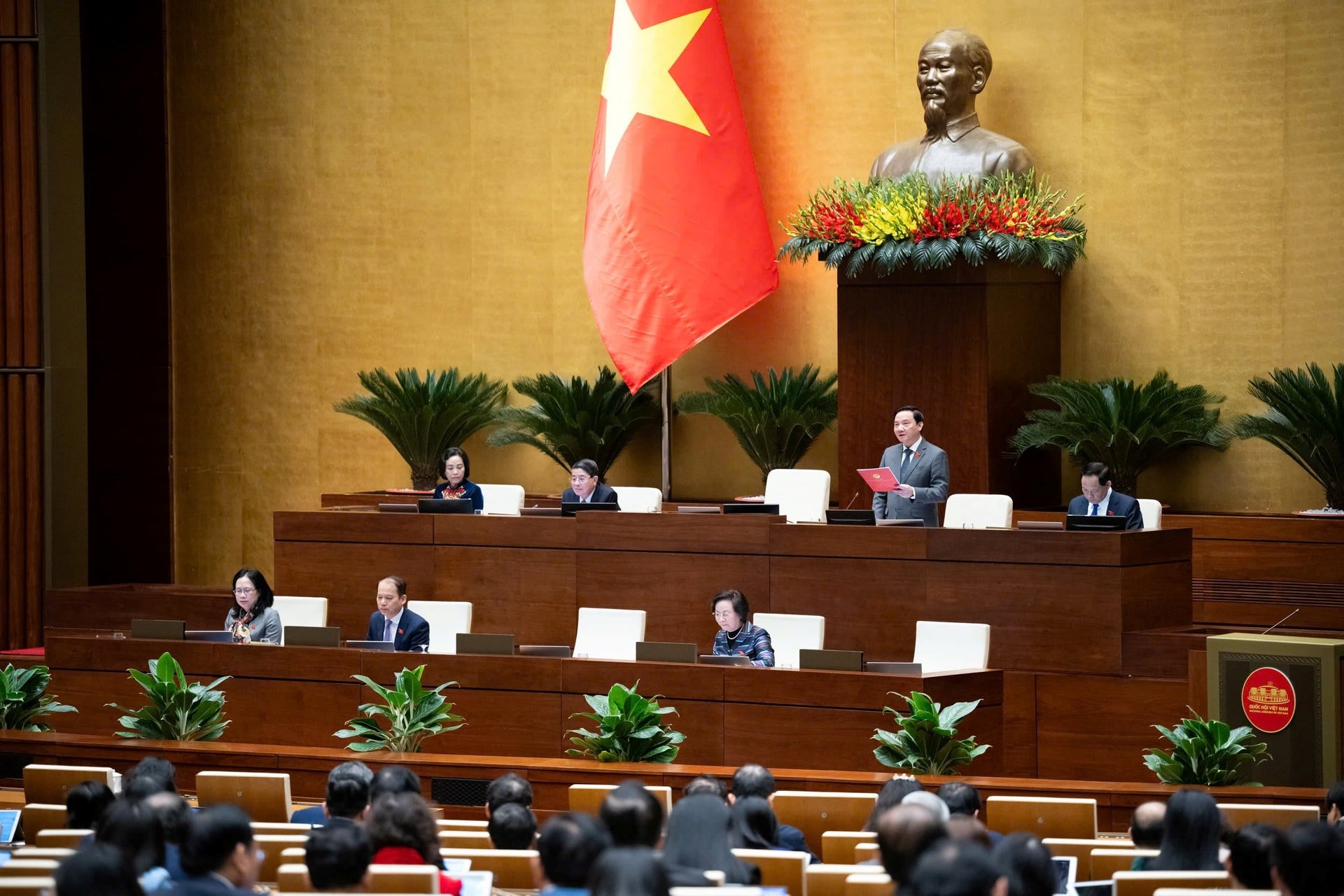
Highly agree on the necessity and viewpoint of amending the "Law on Government Organization"
Before discussing in the hall, on the morning of February 13, the National Assembly discussed in groups the draft Law on Government Organization (amended), with 104 delegates giving their opinions. The opinions were basically in high agreement with the need for comprehensive amendments as well as many key contents of the draft law; at the same time, it was suggested to continue studying and clarifying the contents related to regulations on decentralization, delegation, and authorization; review and ensure consistency with related draft laws being submitted to the National Assembly at the 9th Extraordinary Session.
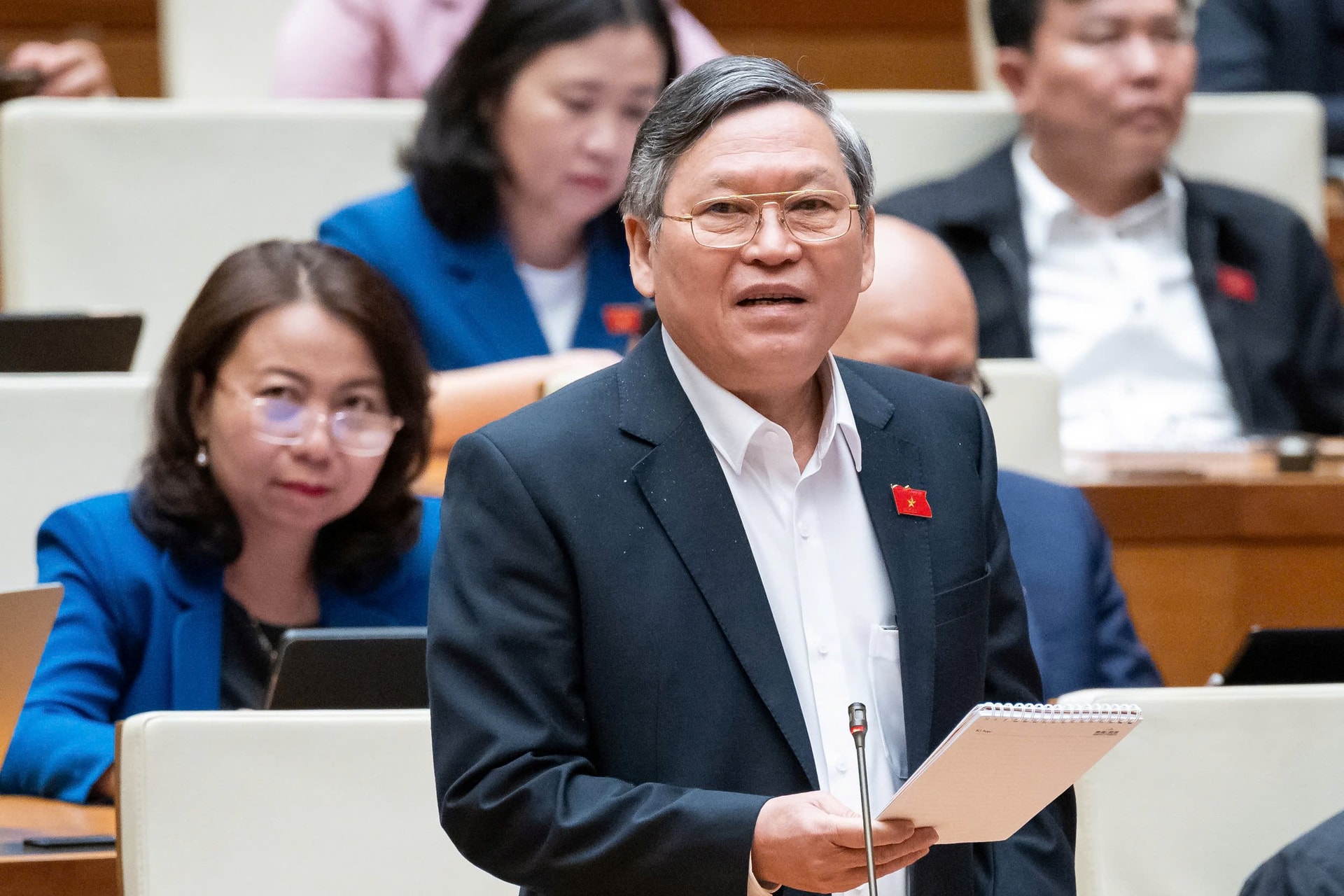
Discussing at the Hall, delegates highly appreciated the efforts of the Government and the drafting agency in promptly preparing the elaborate, serious and quality draft Law dossier. Agreeing on the need to comprehensively amend the current Law, delegates said that the content of this draft Law has promptly institutionalized the Party's policy on innovation and reorganization of the state administrative apparatus to be "streamlined, compact, strong, effective, efficient and effective", defining the authority, responsibility and relationship between legislative, executive and judicial agencies; continuing to innovate the organization and operation of the Government, implementing strong and reasonable decentralization and delegation of power between the Central and local levels; at the same time creating a legal corridor to handle practical issues, remove institutional "bottlenecks" and unlock resources for the country's socio-economic development.
Focusing on giving comments on one of the key contents of the draft Law related to the provisions on the principle of decentralization of authority; on decentralization, delegation, and authorization, delegates emphasized that this is a new, progressive and necessary point compared to the provisions of the Law on Organization of the Government and current laws. However, it is necessary to review and define more clearly the connotation of concepts; requirements and mechanisms for implementing decentralization, specific regulations on subjects of decentralization, delegation, subjects of decentralization, delegation, conditions for decentralization, delegation and accountability mechanisms, etc. to enhance the autonomy, proactiveness, creativity, and self-responsibility of agencies, units, and localities associated with improving the accountability of leaders.
Amendment of regulations on the number of deputies
Regarding the effectiveness of the Resolution, National Assembly Deputy Tran Nhat Minh (Nghe An) agreed with the majority of opinions in the Law Committee, suggesting that this Resolution take effect immediately upon its approval by the National Assembly to create a legal basis as soon as possible for agencies from central to local levels to carry out the arrangement and transfer of functions, tasks, and powers, ready to go into operation immediately upon the decision of the competent authority on the arrangement of the state apparatus, because currently, a number of agencies have announced and officially carried out the arrangement of the state apparatus according to the plans approved by competent authorities.
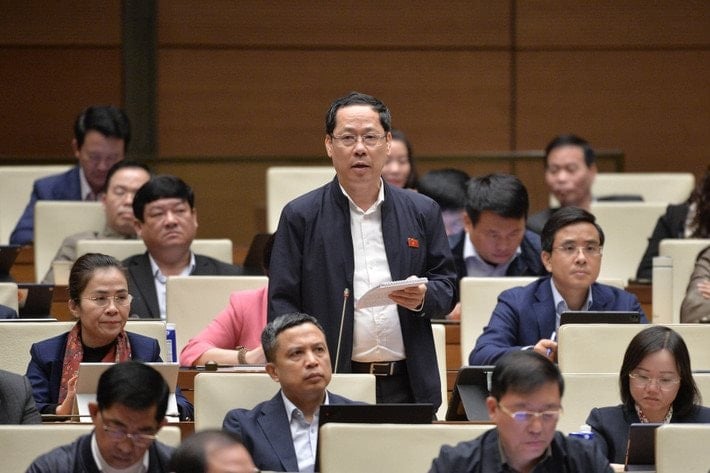
Delegate Tran Nhat Minh pointed out that in reality, to carry out the task of deciding on the establishment of ministries and central agencies under the People's Committees according to the provisions of the Law on Organization of Local Government, the People's Councils at the provincial and district levels must issue resolutions. However, in terms of legal basis, the Government's decrees on the organization of central agencies under the People's Committees at the provincial and district levels are still legally effective and have not been amended or supplemented according to the new organizational model.
To apply the documents of the Steering Committee on summarizing the implementation of Resolution No. 18-NQ/TW of the Government on supplementing and perfecting the plan for arranging and organizing central agencies under the People's Committees at the provincial and district levels, we must wait for the Resolution to be issued by the National Assembly. Therefore, if the effective date of the Resolution is from March 1, 2025, according to delegate Tran Nhat Minh, it is late and does not meet the purpose of building the Resolution to create a legal basis for implementing the arrangement of the apparatus of state agencies at the central and local levels, thereby promptly handling issues arising when implementing the arrangement of the state apparatus, avoiding legal gaps in the condition that a large number of legal documents cannot be amended and supplemented.
Regarding the implementation of functions, tasks and powers of the competent agencies and persons in Article 4 of the draft Resolution, some delegates found that Clauses 1 and 2 do not clarify how the newly acquired agencies can amend and supplement new tasks within the scope of the law. This may cause overlap or inconsistency between agencies after the arrangement. Clause 3 stipulates that "the number of deputies must be reduced in accordance with regulations after 5 years at the latest" but does not mention specific measures for implementation, leading to the risk of prolonging the situation of personnel surplus. Clause 5 only states the responsibilities of the receiving agency but does not stipulate a cooperation mechanism between the dissolved/merged agency and the receiving agency to handle outstanding issues.
Therefore, some opinions suggest that it is necessary to clarify the scope of the functions and tasks of the receiving agency. Accordingly, the receiving agency has the right to continue performing its tasks according to the provisions of current law. If it is necessary to adjust new functions and tasks, there must be a decision from the competent authority.
At the same time, amend the regulations on the number of deputies. Accordingly, within a period of no more than 5 years, agencies with a number of deputies exceeding the regulations must implement a roadmap to reduce deputies by means such as streamlining the payroll, transferring jobs or not appointing new ones when there are vacancies. Supplementing the coordination mechanism between the old agency and the receiving agency, within 12 months after the organizational arrangement, the old agency is responsible for coordinating, transferring records, documents and professional instructions to the receiving agency to ensure continuity in state management activities.
Review and complete regulations on decentralization, delegation of authority and authorization
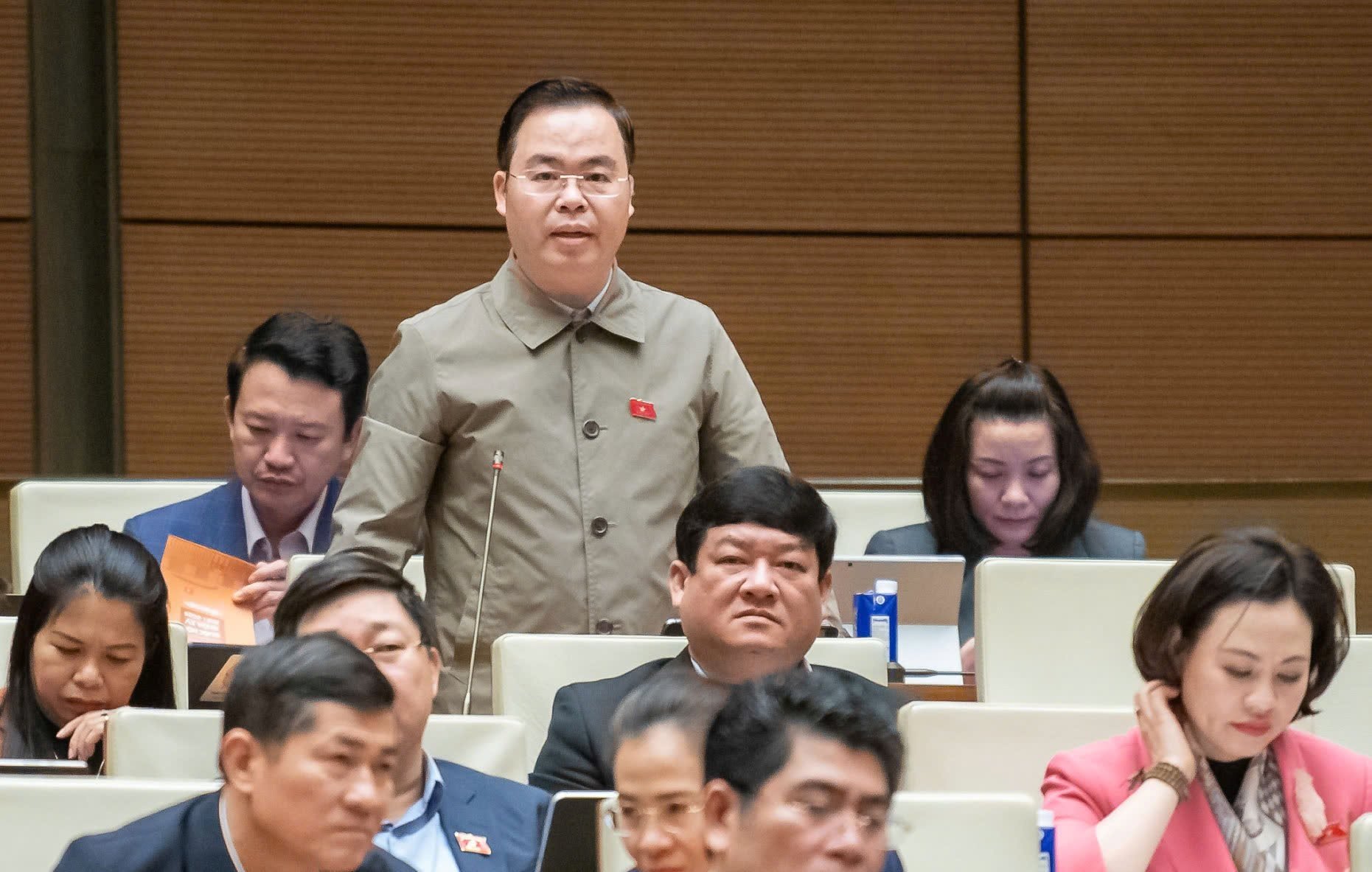
Participating in the discussion, regarding decentralization, delegate Tran Van Khai - National Assembly Delegation of Ha Nam province proposed to study and supplement the principle of "conditional decentralization". Accordingly, decentralization is only done when the locality has sufficient financial, human and administrative capacity; Building an index to evaluate the administrative capacity of each locality before decentralization. At the same time, strengthening the supervision of the Central Government: Establishing a Decentralization Control Council to closely monitor the implementation.
In addition, regarding decentralization, Ha Nam province delegates proposed to add a mechanism for "appraising the effectiveness of decentralization". This clearly stipulates which tasks require annual assessment reports; decentralization decisions must be periodically monitored by the National Assembly. At the same time, it is necessary to apply the principle of "flexible decentralization", for localities that do not have enough capacity, there should be strict control sanctions instead of delegating all authority.
Regarding authorization, delegates suggested that the scope of authorization should be limited and accountability should be added. “Decentralization, decentralization, and authorization are inevitable trends, but strict control mechanisms are needed. Adding regulations on monitoring and evaluating local capacity and accountability is an important factor to avoid overlaps...”, delegate Tran Van Khai emphasized.
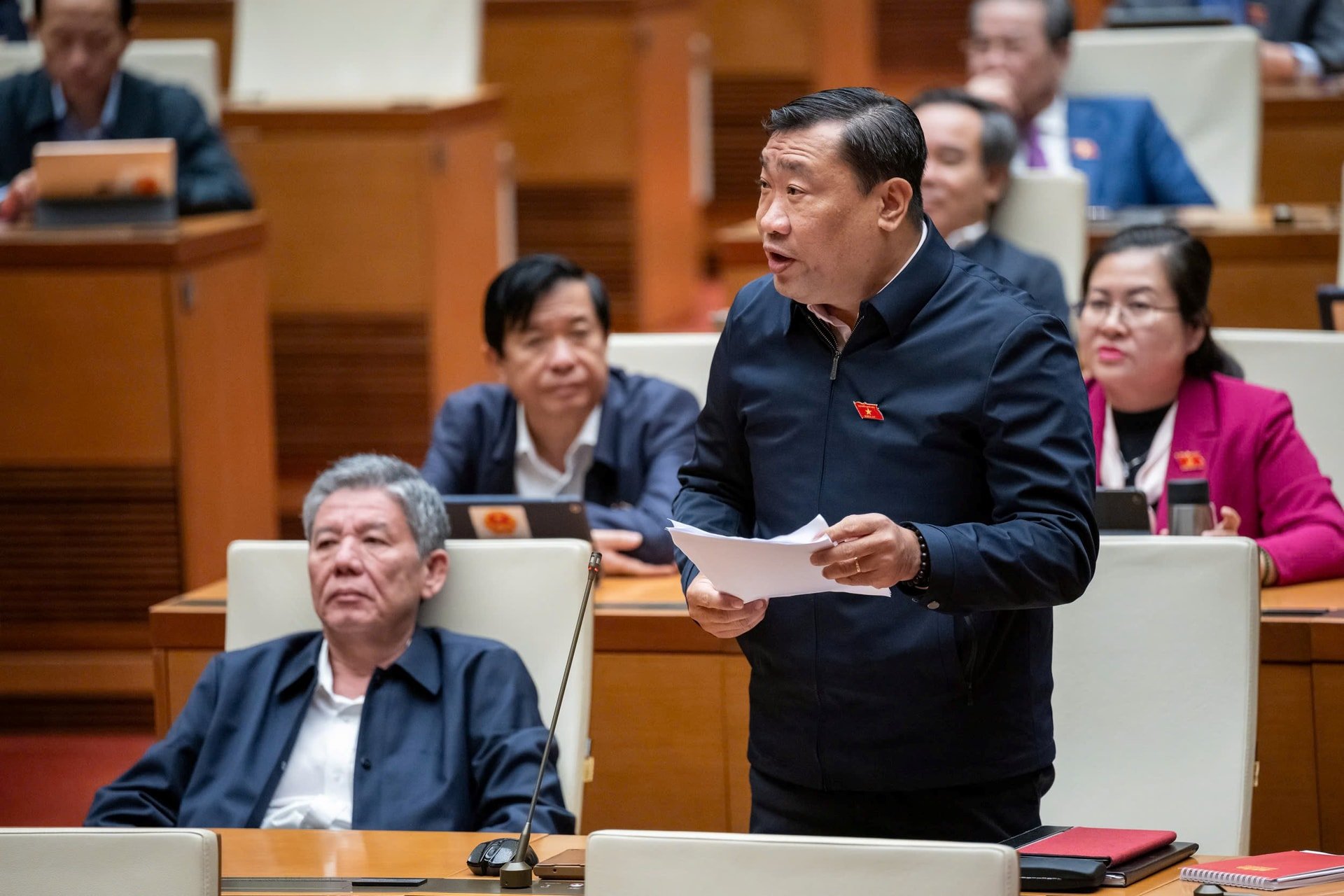
Concerned about the content of decentralization, delegate Thach Phuoc - National Assembly Delegation of Tra Vinh province said that Clause 6 stipulates that local authorities can propose decentralization when they have sufficient conditions and capacity, but does not clearly define criteria for assessing capacity and necessary conditions. Clause 5 stipulates that local authorities can proactively coordinate intra-regional and inter-regional linkages, but does not clarify the coordination mechanism, leading to the risk of lack of unity among localities. Clause 2 requires publicity and transparency, but there is no independent monitoring mechanism to ensure that the implementation of decentralization is not abused or causes inequality among localities.
Therefore, the delegate proposed to add criteria for assessing decentralization conditions by amending Clause 6 to: "Local authorities are proposed to competent authorities to consider and decide on decentralization to localities when they have sufficient conditions in terms of human resources, finance, facilities, management experience and meet the criteria prescribed by the Government." At the same time, add an inter-regional coordination mechanism by amending Clause 5 to: "Local authorities proactively coordinate intra-regional and inter-regional linkages in socio-economic development within the scope of decentralization on the basis of regional planning, with the supervision and coordination of the Government."
Also at the discussion session, delegates gave their opinions on the tasks, powers, and responsibilities of the Government, the Prime Minister, Ministers, and Heads of ministerial-level agencies. In particular, regarding the principles of organization and operation of the Government, there was a proposal to add provisions on the accountability mechanism by adding Clause 7 to Article 6 stating that “The Government is responsible for publicly explaining to the People and the National Assembly on major policies, through periodic reports, public questioning sessions, and social criticism mechanisms organized by the Vietnam Fatherland Front.”
In addition, some delegates suggested that the Government urgently direct the Central Ministries and branches to promptly issue legal documents to guide the implementation of the Laws passed at this session. In particular, it is necessary to issue a Decree regulating "Decentralization and delegation of powers" in a clear, transparent and strict manner so that the subjects of decentralization and delegation of powers and the subjects of decentralization and delegation of powers can easily implement it smoothly and effectively.
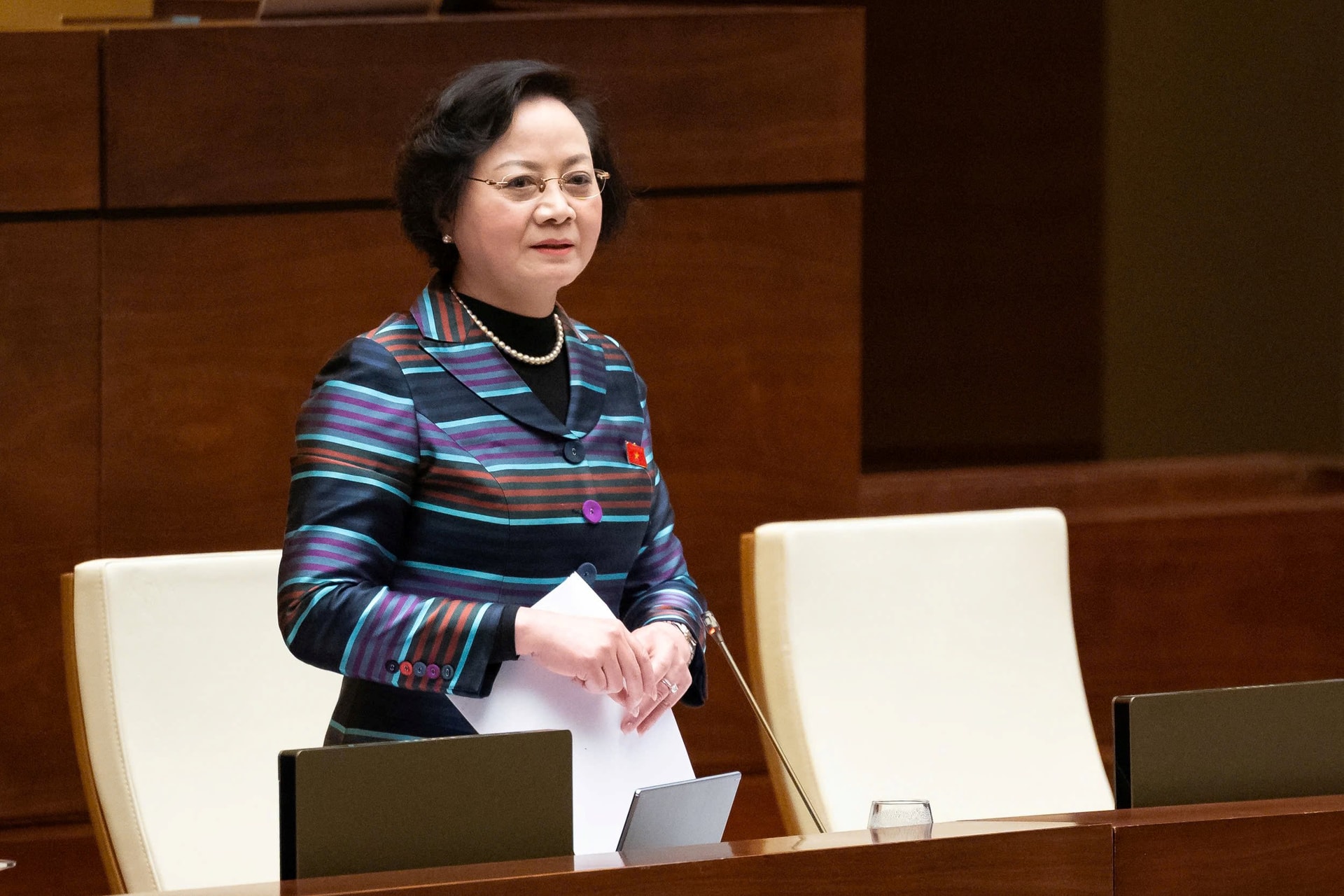
On behalf of the Drafting Committee, Minister of Home Affairs Pham Thi Thanh Tra spoke to receive, explain and clarify a number of issues raised by National Assembly deputies related to regulations on principles of delimitation of authority; on decentralization, delegation of authority; on tasks, powers and responsibilities of the Government, Prime Minister, Ministers, Heads of ministerial-level agencies;...
Minister Pham Thi Thanh Tra said that she will study, absorb, and fully explain the comments of the National Assembly deputies. The Minister of Home Affairs analyzed the necessity, significance, and viewpoints of amending the Law on Government Organization in the current context. In particular, focusing on clarifying and emphasizing the core and fundamental issue in this amendment is to perfect the principles of decentralization, delegation, and authorization according to the Constitution and the Party's policies to create initiative, creativity, promote the spirit of autonomy, self-responsibility, dynamism and creativity of state administrative agencies, especially local authorities; create a legal corridor to handle practical problems, remove institutional "bottlenecks" and unblock resources...
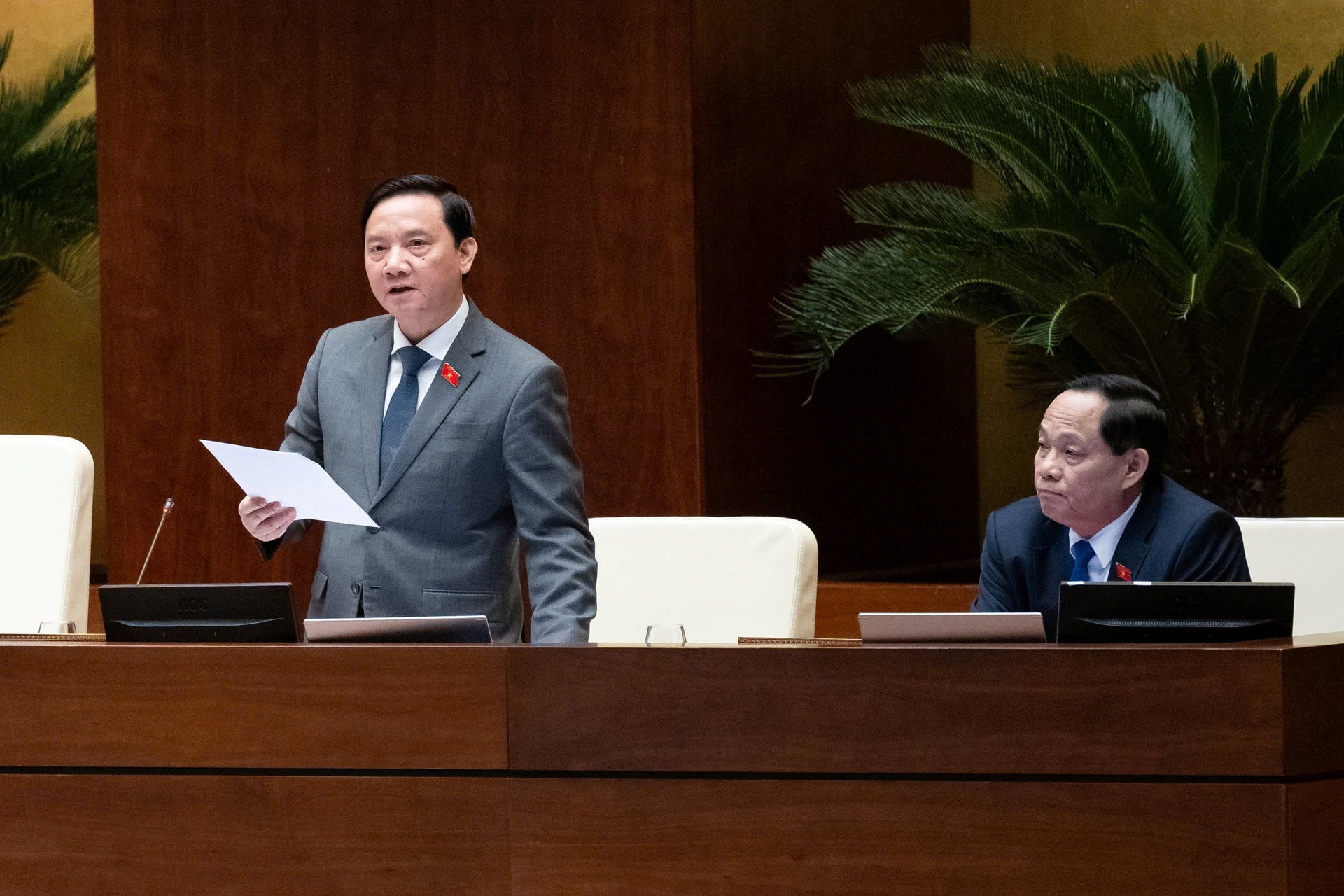
Concluding the session, Vice Chairman of the National Assembly Nguyen Khac Dinh said that through discussion, the delegates agreed on the necessity and many basic contents of the draft Law on Government Organization (amended). The opinions expressed were enthusiastic, responsible, comprehensive, and constructive, contributing many contents and proposing many specific options to perfect the draft law. After this session, the National Assembly Standing Committee will direct the Drafting Committee and relevant agencies to urgently study, seriously absorb, fully and thoroughly explain the opinions of the National Assembly delegates in groups and halls to revise and perfect the draft law to ensure the highest quality, before submitting it to the National Assembly for consideration and approval.
Source: https://baotainguyenmoitruong.vn/quoc-hoi-thao-luan-mot-so-van-de-lien-quan-den-sap-xep-to-chuc-bo-may-nha-nuoc-386633.html






![[Photo] Prime Minister Pham Minh Chinh chairs the second meeting of the Steering Committee on private economic development.](https://vphoto.vietnam.vn/thumb/1200x675/vietnam/resource/IMAGE/2025/11/01/1762006716873_dsc-9145-jpg.webp)






























































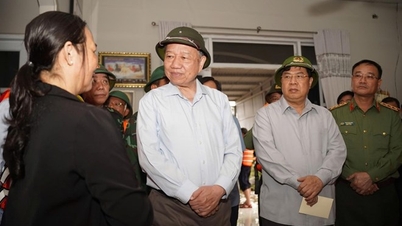





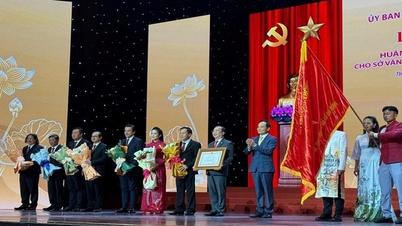






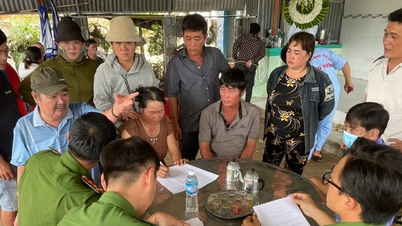


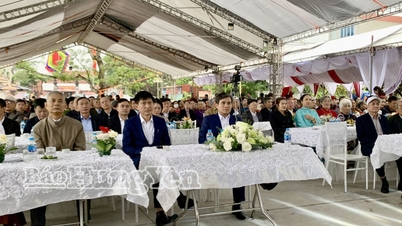



















Comment (0)